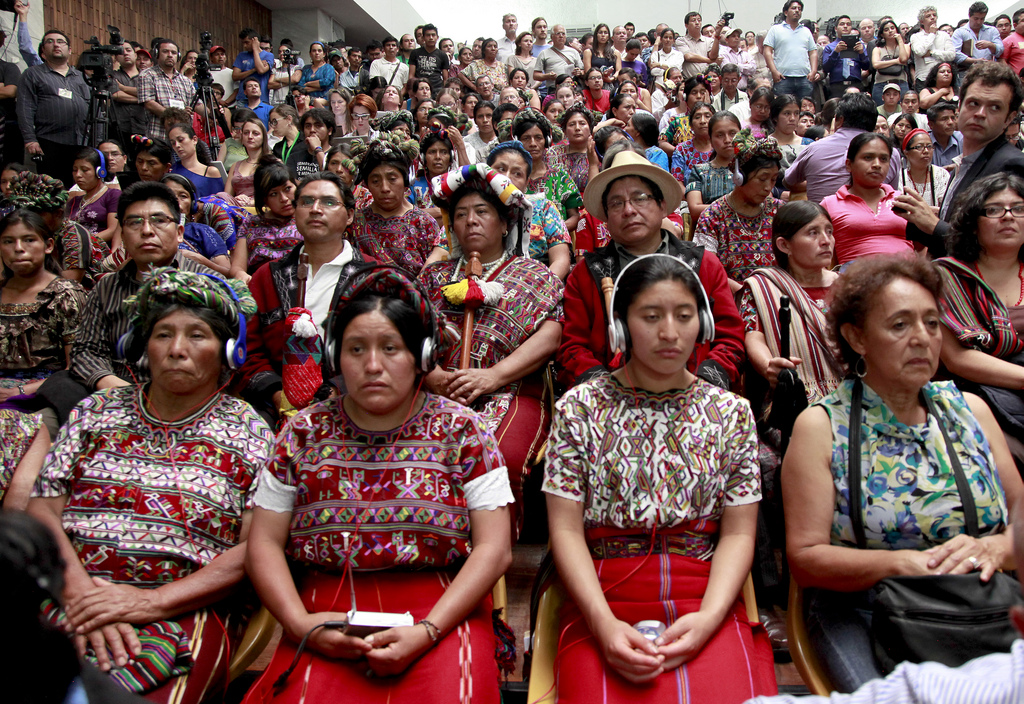
The Center for Justice and Accountability has been at the forefront of holding perpetrators of genocide accountable – from our Guatemala Genocide Case in Spain to the Khmer Rouge Trials in Cambodia.
The use of the term “genocide” as an international crime arose in the aftermath of the Holocaust. After the Nuremburg trials revealed the horrible extent of Nazi crimes, the U.N. General Assembly passed a resolution in 1946 making the crime of genocide punishable under international law. In 1948, the U.N. approved the Convention on the Prevention and Punishment of the Crime of Genocide, which defined genocide as “any of the following acts committed with intent to destroy, in whole or in part, a national, ethnic, racial or religious group, as such:
• killing members of the group;
• causing serious bodily or mental harm to members of the group;
• deliberately inflicting on the group conditions of life, calculated to bring about its physical destruction in whole or in part;
• imposing measures intended to prevent births within the group;
• forcibly transferring children of the group to another group.”
In our Guatemala Genocide Case, CJA brought over 40 indigenous Guatemalans to Madrid to testify about the atrocities they faced, marking the first time a national court had heard evidence from Maya survivors on Guatemala’s “Silent Holocaust” in which thousands of indigenous Guatemalans were killed. When the government of Guatemala agreed to prosecute former President Efraín Ríos Montt for the genocide, Spain stayed the criminal case in Madrid, and CJA provided our expertise, witnesses, and evidence in support of the prosecution.
CJA has also played a significant role in the Khmer Rouge Trials, representing 45 Cambodian-Americans who survived a campaign of violence led by the Khmer Rouge regime, which led to the death of 1,700,000 to 3,000,000 Cambodians. On August 7, 2014, Nuon Chea, second-in-command to Khmer Rouge leader Pol Pot, received a life sentence for crimes against humanity, along with another top-tier Khmer Rouge leader, Khieu Samphan. The Extraordinary Chambers for the Courts of Cambodia cited our plaintiffs extensively in its opinion finding the former Khmer Rouge leaders guilty.
In the United States, CJA successfully advocated for a Genocide Accountability Act giving the Department of Justice the ability to prosecute individuals found in the United States who are alleged to have committed the act of genocide.

